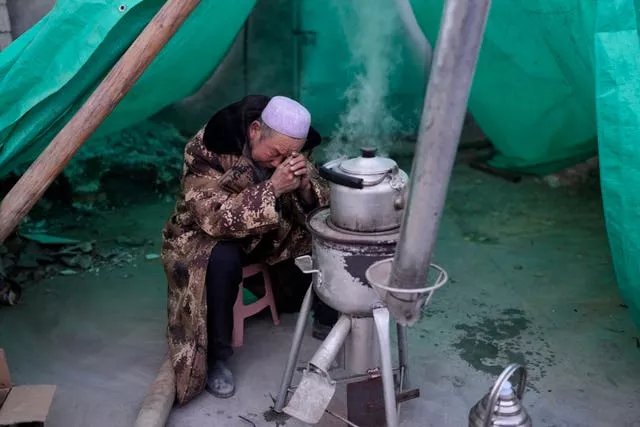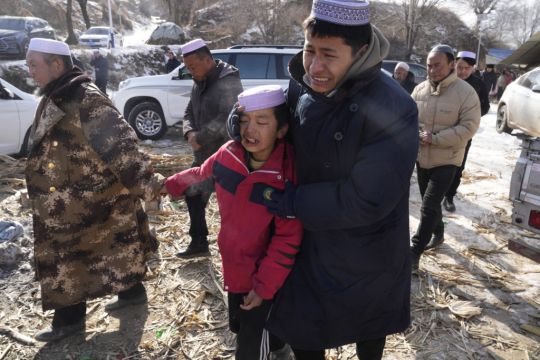Survivors of an earthquake have mourned the dead and endured sub-zero temperatures in temporary shelters as they look to rebuild their lives in the remote mountains of north-west China.
Houses caved in and crumbled in a quake that killed at least 131 people and injured more than 900 others on Monday night.
Most of the casualties were in Gansu province and the rest in the neighbouring province of Qinghai.

Nearly 15,000 homes collapsed in Gansu and more than 87,000 people have been resettled, provincial officials said at a Wednesday news conference. Many spent the night in shelters set up in the area as temperatures plunged well below freezing.
To the north, searchers in Qinghai were looking for 16 people missing in an area where landslides inundated two villages, partially burying homes.
Excavators dug at the sea of soil and rescue workers tried to break into some buried houses from the rooftops.
The number of missing was down from 20 on Tuesday. The death toll in the province rose by four to 18, but there was no immediate confirmation if the four no longer missing had been found dead.
Gansu officials said their search and rescue effort had basically been completed by mid-afternoon on Tuesday. The province’s death toll remained at 113 and the number of injured rose to 782. Together with 198 in Qinghai, that brought the total injured close to 1,000.

Villagers in Yangwa bundled up against the cold and ate instant noodle soup being served in a tent of translucent green plastic sheeting. Han Fujun said more immediate concerns were on his mind than what to do about his destroyed home.
“It’s still a problem to get enough to eat and stay warm,” he said inside the makeshift shelter.
The earthquake struck in a poor, rural area that is on the the eastern edge of the Tibetan Plateau and populated by several predominantly Muslim ethnic groups. It is about 800 miles south-west of Beijing, the Chinese capital.
The death toll was the highest from an earthquake in China in nine years. Experts blamed the high toll on several factors, including the shallow depth of the quake and lower quality construction in the poor region.
“Now our lives are what matters a lot,” Yangwa resident Ma Bajin said. “If we are not here, then there’s no such thing as survival.”







